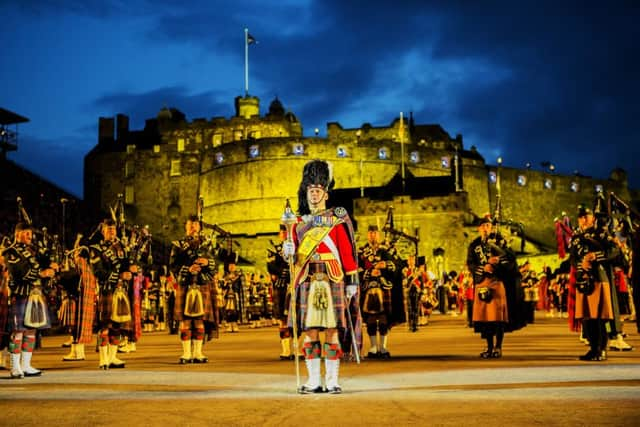Jane Bradley: Why I’d ban the Edinburgh Military Tattoo


Initially a modest little show called Something About a Soldier, held in the Ross Bandstand at Princes Street Gardens in 1949, the Tattoo began just a few years after the end of the Second World War – a conflict which had, undoubtedly, fuelled pro-military sentiment as Allied forces successfully stopped the spread of fascism across Europe. It was pretty cut and dried back then. Goodies and baddies.
Most people would have known someone who was, or had been, a soldier, and wanted to mark that at a point when national pride – tinged with heavy sadness – was at a zenith. The show was a modest tribute to those who had recently been killed.
Advertisement
Hide AdAdvertisement
Hide AdBut now in its 66th year, the Tattoo has become obscene – a giant spectacular of all things army, navy and air force. A giant spectacular of all things war. War which has, over recent generations, become even more complicated and arguably more controversial.
Label me a raging leftie treehugger if you like, but I just don’t see how it is acceptable to celebrate – with massive pomp, ceremony and aplomb - organisations which, as part of their working life, sometimes have to kill people.
I’m not calling to abolish the military. In an ideal world, perhaps, but in the current situation, I can’t see another option other than to have some kind of military presence.
Yet it should be something which exists with humility, understanding and above all, a feeling of resigned necessity: not setting off bells, whistles and fireworks in a bid to shout to the world about something which only exists because we humans have failed to manage to keep our global house in order without physical threat.
Instead, at the Tattoo – watched live by more than 200,000 people every year – members of the same organisations sent to Iraq, Syria and Libya to use weapons of destruction against other human beings twirl batons, wave massive rifles and bark commands at each other, all in the name of entertainment.
The audience, decked out in cagoules and sipping from flasks of tea, clap, cheer and tell each other what a lovely evening they’ve had.
Meanwhile, the performers enjoy their little foray into the glitzy world of showbiz before returning at the end of August to their day job of being soldiers. With real guns.
Debate as to whether we actually should be sticking our noses into conflict situations across the world has heated up in recent years. Yet we’re happy to whoop and cheer as an RAF Hercules – a machine, which, according to the Air Force’s website, supports Air Assault Brigades by carrying troops, freight and equipment into war zones – flies over our heads.
Advertisement
Hide AdAdvertisement
Hide AdThe Tattoo itself advertises how exciting it all is. “We have a @RoyalAirForceUK Hercules flying over this evening at 9pm!” an official tweet declared the other night. Fabulous. Let it have its little moment of glory at an arts festival before heading off back to a war zone.
Over the years, the military of other countries has got in on the act. This year, the United States Air Force Honour Guard offers us a “display of precision drill”. Drill. That would be the discipline required for soldiers to march into battle in formation and react to words of command from their superiors. In other words, war games. Not entertainment.
I’m certain the people around the world currently living in refugee camps, their homes and lives torn apart by the ravages of war, wouldn’t appreciate this little display of military pride on the Castle Esplanade. They would surely prefer that military accomplishments – of whichever side – are marked in a far more low-key way.
Many men and women of the army, the air force and the navy are indeed heroes. That I do not doubt. Nor could I claim for a second that I’d have the bravery to do what they do.
But they work in the conflict industry. An industry which invariably has innocent victims, no matter how noble the intentions of the combatants. Glorifying war is just not acceptable. Put that in your pipe and drum and smoke it.